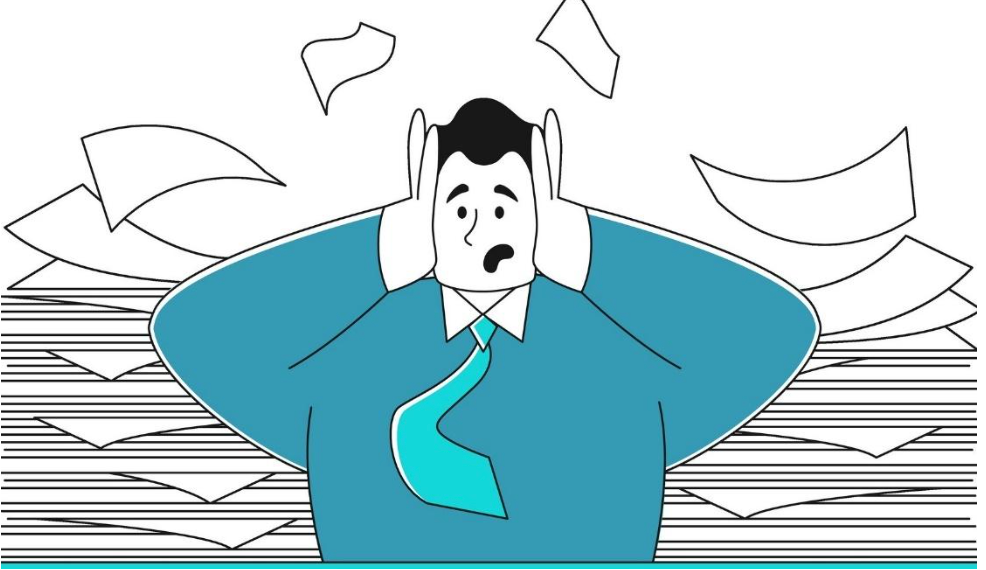Why Do Lenders Want So Much Mortgage Documentation?

Imagine you're about to apply for a mortgage to buy a house, and suddenly, you realize the mortgage lender is asking for a lot of paperwork. If you've never applied for a mortgage before, it can feel overwhelming. But the good news is, this isn't because lenders or mortgage brokers want to make your life difficult! It's because buying a home is one of the biggest purchases most people will ever make, and the Canadian mortgage system is carefully regulated by the government to make sure everything goes smoothly and fairly.
In Canada, the mortgage industry is overseen by a federal regulator known as OSFI Office of the Superintendent of Financial Institutions. Their main job is to protect the stability of the financial system and to ensure that lenders, like banks, only lend money to people who can repay it. To do this, they require lenders to collect certain documents that prove you’re financially stable enough to handle a mortgage.
- This can feel like a lot, but if you think about it, you’re asking for hundreds of thousands of dollars. So, it makes sense that they need to verify your ability to pay it back.
- I’ve got a GREAT process for collecting documentation & keeping you organized!
Why So Many Documents?
It’s important to understand that neither the mortgage broker nor the mortgage lender is trying to make this process harder than it needs to be. The real reason for the documentation is the government regulations that require lenders to verify that borrowers are trustworthy and capable of repaying the loan. It's not about trust—it's about following the rules to keep the system safe for everyone.
Here’s a simple way to look at it: If you were lending someone several hundred thousand dollars, wouldn’t you want to know that they could pay you back?
Getting Organized
When you're planning to buy a home, it's smart to start organizing your documents early. I will provide you with a checklist to help you prepare, this saves a lot of time and make the process faster. By gathering everything upfront, the approval process can go much more smoothly.
Being prepared upfront is much easier than dealing with "death by a thousand paper cuts." This is when the broker must keep coming back to you again and again for more documents, which can be stressful—especially if you're on a tight timeline.
Even if you think you have everything ready, don’t be surprised if the lender asks for more documentation. Sometimes they need additional information to finalize your application.
Your Mortgage Document Checklist
So, what documents are needed to support a mortgage application? Here's a detailed explanation of the most common ones.
Personal Information Documents
The lender needs to confirm your identity, largely to protect against identity theft. You’ll need to provide:
- Government-issued photo ID – Two pieces of valid ID, one of which must have your photo.
Employment/Income Documents
Lenders need to confirm your employment status and income to make sure you can make your mortgage payments.
- Letter of Employment – This document proves where you work, your job title, employment status (full-time or part-time), how long you've been employed, and your salary.
- Pay Stub – Shows your recent earnings and verifies the information on your Letter of Employment.
- T4/T4A Forms from the Past Two Years – These are tax forms that show your income. T4 forms are for employees, while T4A forms cover other types of income like pensions or commissions.
- Notice of Assessment from Past 2 Years – These documents from the Canada Revenue Agency (CRA) shows your income for the past two years and shows if you owe any taxes.
Personal Financial Documents
These documents help lenders understand your overall financial health, including any debts or financial obligations.
- Credit Report – Lenders will pull your credit report, which shows your credit score and any outstanding debts.
- BLOG 8 Credit Rules You Need to Know, Before You Buy a Home
- BLOG 5 C’s of Credit to get a Mortgage
- Bank Account Information – Lenders will want your bank details to set up mortgage payments.
- Statement of Assets or Investments – These are extra financial resources that can serve as backup in case you experience an interruption in income.
Extra Documents for Self-Employed Buyers
If you're self-employed, you’ll need to provide more documentation to prove your income, such as:
- Two Years of Tax Returns (T1 Generals) – These tax documents help show that you’ve been earning a steady income.
- Business Articles of Incorporation (if incorporated) – Lenders may check your business’s financial health to ensure you can make your mortgage payments.
Down Payment Documents
When buying a home, you need to make a down payment, and you’ll need to prove where the money for your down payment is coming from.
- 90 Days of Bank Statements – Lenders need to see the source of your down payment due to Canada’s anti-money laundering laws.
- BLOG How to Verify Your Down Payment When Buying a Home
- BLOG 5 GREAT Reasons To Provide a 20% Down Payment when Buying a Home
Canada also offers two programs to help first-time homebuyers save for a down payment:
- Tax-Free First Home Savings Account (FHSA) – You can contribute up to $40,000, and withdrawals are tax-free when buying a home.
- BLOG First Home Savings Account (FHSA)
- Home Buyers’ Plan (HBP) – This allows you to withdraw up to $60,000 from your Registered Retirement Savings Plan (RRSP) to use for your down payment.
Documents for Selling Your Existing Home
If you’re selling a home to help pay for your new one, you’ll need to provide documents like the
Contract of Purchase & Sale and any mortgage details related to the property.
Gift Letter (If Applicable)
If part of your down payment comes as a gift from family or friends, you’ll need a
Gift Letter. This letter confirms that the money is a gift and not a loan.
Documents for the Property You’re Buying
When you find a home, you’ll also need documents specific to the property:
- Contract of Purchase and Sale – Details the terms of your home purchase.
- MLS Listing – Includes details about the property like taxes and home/property size.
- Legal Description of the Property – Information about the property’s location and legal identity.
- Proof of Property/Fire Insurance – Most lenders require insurance to protect the home from damage.
- Title insurance – in BC most mortgage lenders require title insurance.
- BLOG Title Insurance: What Every BC Home Buyer Should Know!
- Condo/Townhouse strata property docs (if applicable) – Typically lender require: Form B, strata budget, strata rules, previous 2 years strata minutes, minutes form the last 2 Annual General Meetings (AGM), current strata insurance, depreciation report (if available), engineers report (if available).

Tips for Speeding Up the Mortgage Process
Now that you know all the documents needed, here are some tips to speed up the process:
Complete Kelly’s Online Mortgage Application
- Make sure your mortgage application is complete and accurate – If there is information missing on your mortgage application, or the information you provide is inaccurate, this may cause a delay.
2. Gather all necessary documents in advance – locate all the documents you need.
- Once you’ve completed my online mortgage application (which becomes your mortgage portal) I will send you a link to your mortgage portal with a customized list of all the documents required.
- Documents uploaded to your mortgage portal are fully secure and are end-to-end encrypted.
- I will see your documents instantly and if you're using your phone, you can take pictures of the required documents if you don’t have digital copies.
3. Stay organized – Keep everything together, either in a digital folder or in a physical file, so it's easy to find when needed.
Applying for a mortgage can seem complicated but being organized and understanding why lenders need so much documentation can make the process much smoother. Working with me, working with your mortgage portal to upload docs and preparing ahead of time can save you stress and help you get into your new home faster.
If you have any questions or need help, let’s chat. I’m here to support you in your journey to homeownership!
Kelly Hudson
Mortgage Expert
Cell: 604-312-5009
Kelly@KellyHudsonMortgages.com
www.KellyHudsonMortgages.com






